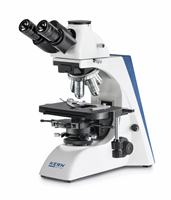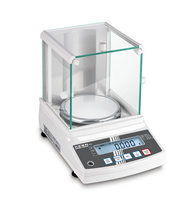Applications in segment:
"Sewage treatment plants"
In sewage treatment plants, the activated sludge is examined for E. coli bacteria, salmonella and other pathogens.
The structures can be precisely visualized using a phase contrast microscope. The result of this study shows whether the diversity of microorganisms allows sewage sludge to be spread on agricultural land. This is necessary to avoid health risks and protect the soil.


Transmitted light microscopes
OBN 159
View Public Application
In the sewage treatment plant laboratory, apprentices use the precision scale to precisely weigh solution components and prepare solutions. For these laboratory processes, it is crucial that work is carried out precisely and that the scale is easy to use. This is essential for quality assurance and customer satisfaction. Thanks to its universal applicability, it helps to ensure that safety standards are met and that the apprentices' training is practical and effective.


Precision balances
PNS 600-3
View Public Application
Ultrafiltration is used to check the quality of the purification of wastewater. By precisely weighing the retentate, the residual concentration of, for example, salts, sugars, protozoa, bacteria, protein-bound substances can be determined. This makes it clear whether the purification process needs to be repeated.


Precision balances
440-43N
View Public Application



